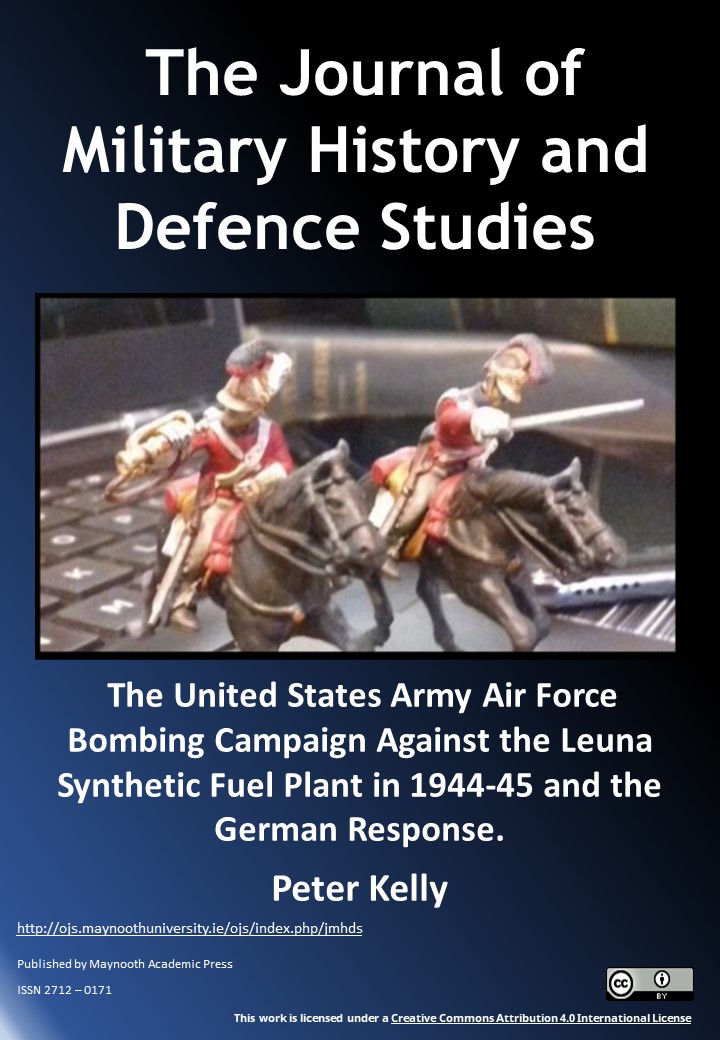The United States Army Air Force Bombing Campaign Against the Leuna Synthetic Fuel Plant in 1944-45 and the German Response.
Abstract
The Leuna chemical plant in Eastern Germany was initially developed during the First World War to produce artificial nitrogen for use in explosives. The world’s first production of synthetic fuel from brown coal commenced at Leuna in 1927. From 1933 the Nazi government began to prepare for war and heavily expanded the Leuna complex to ensure that Germany had sufficient resources of fuel, nitrogen and rubber to support short campaigns. The synthetic fuel production technology developed in Leuna was also transferred to thirteen other sites in Greater Germany.
Commencing on 12 May 1944 the USAAF, and later the RAF, undertook a sustained bombing campaign against Leuna and the other synthetic fuel plants. However, due to the critical importance of Leuna to the war effort, the German state devoted significant resources to the defence of the plant, and to its repair and the maintenance of production. The USAAF and RAF attacked Leuna on 21 subsequent occasions until production finally ceased in March 1945. This sustained bombing ultimately overcame the Leuna workforce’s ability to repair the utilities but did not seriously damage the core production equipment. This paper uses German, American and British archival sources to explore in detail the nature and impact of the air campaign against Leuna and to examine and explain the ways in which the Germans sought, with some success, to keep the plant operational. In addressing the bombing campaign from an alternative perspective, primarily from the ground looking up, the paper offers new insight into a topic most commonly viewed from the perspective of the Allied forces.

Copyright (c) 2023 Journal Of Military History and Defence Studies

This work is licensed under a Creative Commons Attribution 4.0 International License.

 This work is licensed under a
This work is licensed under a 
